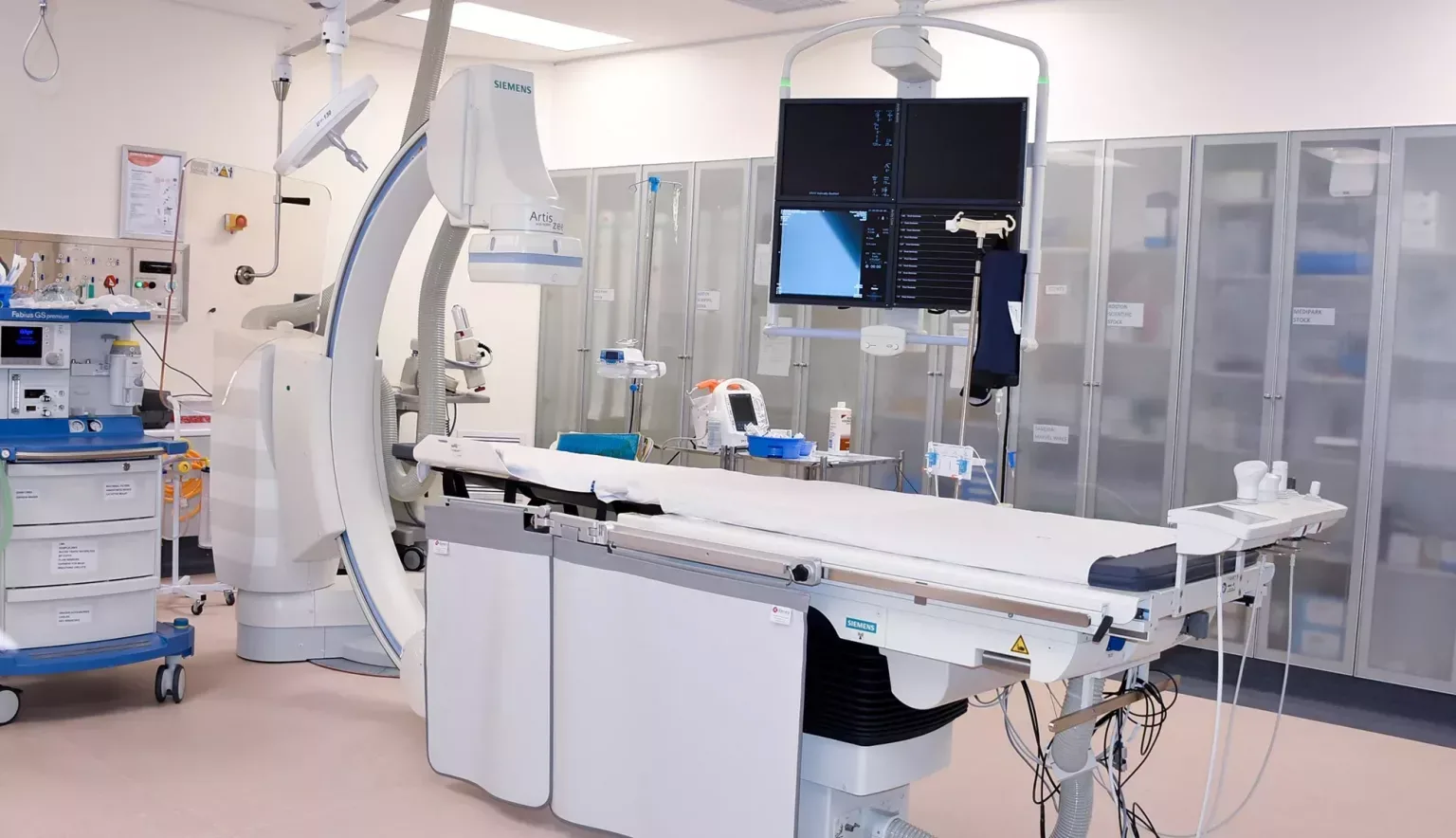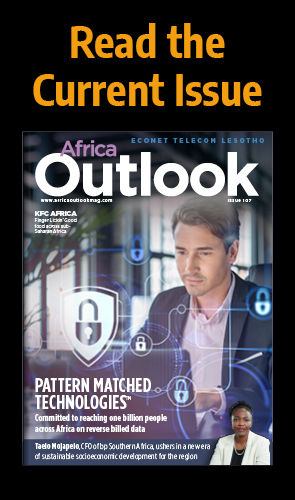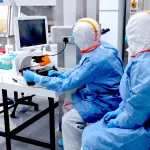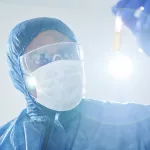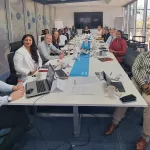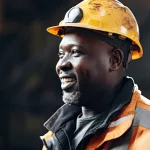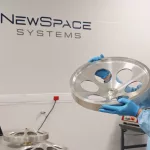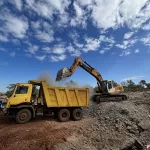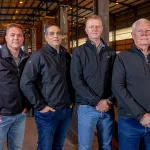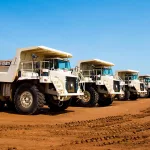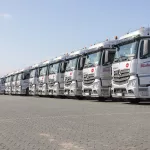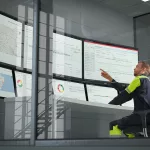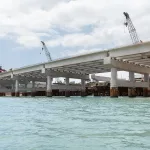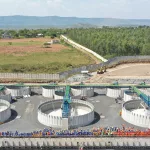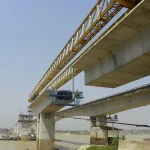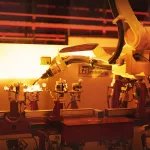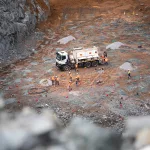As a 180-bed specialised academic hospital based in northern Namibia, Ongwediva Medipark seeks to bring comprehensive healthcare closer to communities. Dr Tshali Iithete, Managing Director at Ongwediva Medipark, tells us more.
INTRODUCTION
Ongwediva Medipark stands tall as the highest concentration of specialised skills within Namibia.
The organisation is renowned as being one of the first and only hospitals within Namibia and one of the few on the African continent that performs transplant surgery since 2016.
“Ongwediva Medipark is unique in a sense that over the past 14 years, we have managed to create this magnificent healthcare set up that has attracted a variety of specialised skills to an area that would have previously been referred to as remote,” explains Dr Tshali Iithete, Managing Director at Ongwediva Medipark. “This has enabled Medipark to be fully accredited as a teaching hospital by the Health Professionals Council of Namibia and the College of Surgeons of East, Central and Southern Africa. Ongwediva Medipark currently trains nursing, medical and radiography students, as well as pharmacy interns.”
In addition to being an academic hospital, Medipark has forged unique partnerships with the Ministry of Health and Social Services in form of an agreement. “These collaborations and achievements make Ongwediva Medipark stand out in its quest to deliver quality healthcare services.”
Ongwediva Medipark is a 180-bed specialised academic hospital based in northern Namibia.
The organisation is a one-stop centre-of-excellence aimed at bringing comprehensive healthcare closer to the communities. Its patients are from a number of different parts of Namibia and neighbouring Angola, with a total direct employment of over 400 employees.
Ongwediva Medipark is a state-of-the-art private hospital that provides quality, accessible and affordable healthcare to the Nambian community and the Northern Regions.
Born in the Elim, Omusati region, Iithete attended early schooling at Otshuungu and Oniipa, before joining the illustrious Oshigambo High School in the mid-1980s. “This was the most difficult period of heightened political activities in the country and northern Namibia was the centre of intense military activities or as popularly known as the ‘War Zone’,” he recalls.
“It was therefore not easy growing up under such tension.”
It was also during this period a young Iithete witnessed and became socio-political conscious about the circumstances in his community and the limitation imposed by Colonialism and the draconian Apartheid system. Hence, the passion to become an organ of change for his community and country at large was lit in him during his childhood.
“People travelled long distances to seek medical care,” explains Iithete. “Thanks to a few mission hospitals, otherwise there were many challenges. However, it was during these challenging times that some of us got inspired to study medicine in order to come back and be part of the change for better care in these previously neglected communities.”
As a founding promoter and current Managing Director, Iithete steered Ongwediva Medipark into a flagship Hospital within just 10 years of its existence. The firm is accredited by both the Health Professionals’ Council of Namibia (HPCNA) and the University of Namibia as an Academic Hospital making it the only hospital in Namibia to be accredited by HPCNA and the first private hospital to have such recognition by both institutions.
In 2016, Ongwediva Medipark set up the first Organ Transplant Unit in Namibia and performed the first kidney transplant on the 30th March 2016 – setting Namibia’s medical history. Ongwediva Medipark showcases 30 resident specialists in various disciplines – Neurosurgery, Orthopaedic surgery, General and Transplant surgery, Internal Medicine, Paediatrics, Emergency Medicine, Rheumatology, Radiology, Ophthalmology, Ear, Nose and Throat, Urology, Obstetric and Gynaecology to name but a few.
Today, there are various challenges in the healthcare industry across Africa. Firstly, defining a healthcare system that is robust, affordable, efficient, inclusive and dynamic to meet ever-increasing demands is important.
“For far too long, African countries and people spent enormous resources and significant parts of their GDPs in seeking healthcare services across the continent,” explains Iithete.
“Travelling to foreign countries in search of better healthcare services and in doing so depriving opportunities to develop their own services on the continent. COVID-19 has presented an opportunity for countries to spend resources internally to fund services in Africa. All of us within the industry can now look and see how we embrace the opportunity, and we would like to achieve a healthcare system that responds to our communities’ needs.”
With the effects of COVID-19 felt worldwide, Ongwediva Medipark, like many organisations, weren’t fully prepared to deal with a pandemic, however, having been impacted later than others in the industry, could learn from the experiences of others. “At Medipark, we coordinated to ensure that we protected both our employees as well as clients and stakeholders,” discusses Iithete. “We coordinated through the Oshana Regional COVID-Response Unit and ensured that we set up a screening unit which is comprised of gate-screening, casualty/outpatient screening and cordoning off a Patients Under Investigations Ward.
“We also established a 20-bed COVID-19 Isolation Ward which was fully equipped to cater for moderate to severe diseased patients including an in-house radiology unit, pharmacy and ventilatory support capabilities. We have two fully fledged clinical laboratories that also support COVID-19 investigations and monitoring.”
In May 2020, and in a bid to aid the country’s COVID-19 response, Ongwediva Medipark made a donation to the Oshakati hospital’s isolation facility. The donation consisted of two ventilators, a monitor, a suction unit and an emergency trolley. Ongwediva Medipark has contributed significantly to the COVID-19 response, not just nationally but also regionally too. At the time, Dr Tshali Iithete commented: “We are cognisant of the fact that ventilation is critical in managing patients with COVID-19 who present severe respiratory compromise,” he said. “There is a critical shortage of ventilators worldwide. This shortage is even more glaring in our country. Ongwediva Medipark has also committed specialised skills to the regional COVID-19 response measures, including specialist doctors, nurses and IT technicians.”
Staff are an important pillar to Ongwediva Medipark and to recognise that, there are various forms of employment benefit. “We are constantly looking at other innovative measures to keep staff who have embraced the concept of a ‘Medipark Family’,” explains Iithete. “It is also important to motivate healthcare workers during this period of economic hardships amidst this unprecedented pandemic of COVID-19.”
Looking ahead, Iithete has clear aims for the future and believes it is fundamental to strengthen before expanding.
“First and foremost, it’s important to consolidate our existing set up. In the future, we will expand to cater for the various surgical disciplines such as Cardiothoracic and Minimal Invasive Surgery,” he discusses. “The journey of Medipark has taken us through various stages. But ultimately, we would like to be considered as a medical hub and centre of excellence in healthcare within Africa.”

